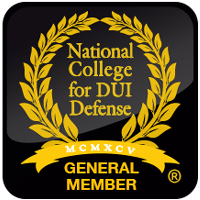- The ABA’s Concise Guide to Lawyer Specialty Certification
- Benefits to Become Board Certified - ABA Video
- Board Certified Members
- How to Become Board Certified in DUI Defense Law
- Apply for Certification
- Apply for Re-Certification Renewal
- Board Certified Senior Specialist
- Rules Governing Board Certification
- Preparing for the Exam

Michael Norris
Michael Norris, Inc.
120 Fishermans Wharf
Redondo, CA 90277
Phone: 310-376-0922
Website: michaelnorrislaw.com

About Michael Norris
We have been engaged in the practice of criminal defense now for over 30 years, and we have been counsel of record in state and federal courts throughout the United States, both in trial, and on appeal. In 1983, in the case of People v. Edward Paul, the defendant was found not guilty, after trial, in what was acknowledged to be the only no-body murder case that the Los Angeles County District Attorneys Office had ever lost. As far back as 1981, in People v. Tuttle, 120 Cal.App.3d 320, we established new search and seizure rules restricting police access to the area around a personal residence. Most recently, I was counsel for Shia Labeouf, whose arrest for DUI, following a traffic collision, resulted in the eventual rejection of all charges by the Los Angeles County District Attorneys Office. I currently belong to the National Association of Criminal Defense Lawyers; The Los Angeles County Bar Association, Criminal Section; The Criminal Courts Bar Association; The California Attorneys for Criminal Justice; The Benjamin Aranda Inns of Court; and the South Bay Bar Association. I am also a past member of both the Los Angeles Criminal Justice Inns of Court, and the Santa Monica/West Los Angeles Inns of Court. I have qualified as a Specialist Member with the California Drunk Driving Lawyers Association. I am licensed to practice law both in State and Federal court, and am qualified to practice law before both the United States District Court and the United States Ninth Circuit Court of Appeals. I have served as an Editorial Consultant with James Publishing, one of the leading legal publishers in California, as well as a Contributor to Bell’s Search & Seizure Compendium, which was considered the preeminent legal publication, on that subject matter, in California. I am a currently a Contributor to California Drunk Driving Law. 2016 Winter Session Graduate
Contact Michael Norris
Provide some details about your situation, but remember not to include sensitive information. An attorney-client relationship is only formed once an attorney formally agrees to represent you.
Find an Attorney
Enter your city, state, or Zip code below to locate a qualified attorney who has demonstrated a commitment to defend those accused of DUI and related crimes.

 Virtual Forensic Library
Virtual Forensic Library

NCDD members have access to a comprehensive forensic library that provides invaluable information to be used when defending clients charged with DUI.
This library includes scientific articles on drug and alcohol intoxication, toxicology and pharmacology, methods of testing for blood alcohol content, field sobriety testing, potential errors that may occur during testing, accident reconstruction, expert testimony, and evidentiary rules. This valuable information can ensure that you provide a high quality defense to clients charged with DUI based on the circumstances of their case and the laws in their state.
FROM OUR BLOG
Ethics Task Force Blog
04/15/2025
Written by Jonathan Dichter The Heart of Client Care: Moving Beyond Case Management In the legal profession, we often talk about "case management" - the systems and processes that keep our cases moving efficiently. But what about *client care*? True client care goes beyond deadlines and filings; it's about treating clients as *people*-scared, uncertain, and in need of guidance. And when done...
Personal Contact: Using the Officer's Observations Against Them
03/10/2025
Written by Charles GoodwinEdited by Michelle Behan and Steven Hernandez The typical DUI investigation has three phases. It begins with the vehicle in motion and focuses on driving patterns that officers are trained might indicate impairment. Next is personal contact, where the officer will observe physical manifestations that are also purportedly correlated with alcohol ingestion and impairment. Finally, the officer will...


